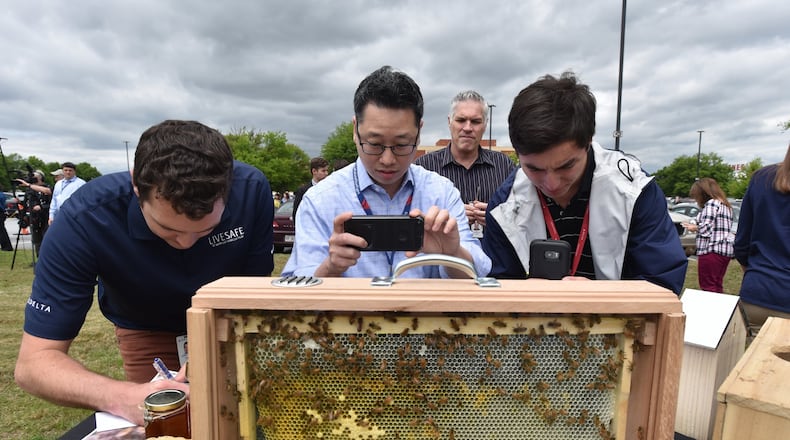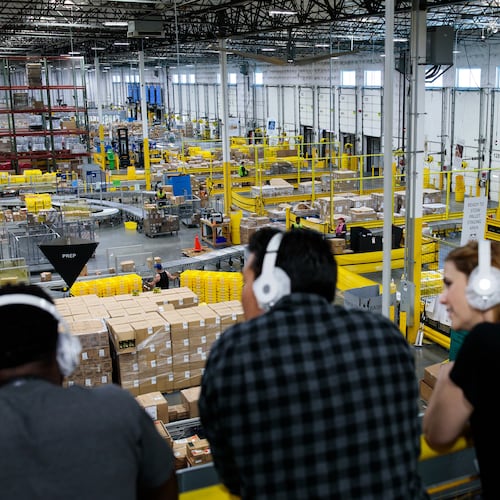As part of its effort to be a more environmentally responsible company, Delta Air Lines will add a new group of worker bees to its Atlanta-based headquarters.
Queen bees and male drones are coming, too.
Delta is the first of a group of metro Atlanta companies to install beehives through a partnership with Bee Downtown as the airline seeks to "be an environmentally sustainable, responsible business."
Fourth-generation beekeeper Leigh-Kathryn Bonner launched Bee Downtown several years ago, when she was a student at North Carolina State University, to address the declining honeybee population. Her Durham-based startup placed beehives at companies around North Carolina before expanding to Atlanta.
The bees can fly up to three miles and are expected to contribute to plant life in College Park, East Point and the surrounding areas. As part of the ecosystem, bees pollinate food crops and help trees, flowers and other plants grow as food and shelter for animals and insects.
“We live in a world where people are so separated from so much of wildlife,” said Delta senior vice president of corporate safety and security John Laughter at a beehive launch event at the airline’s headquarters this week. “We don’t know where our food comes from. … Bees teach us a lot about life.”
Bee Downtown says, though Delta's beehives are the first to be installed as part of its Atlanta expansion, it will be followed by hive installations by AT&T, Georgia Power, the Georgia World Congress Center, Invesco, InterContinental Exchange, Chick-fil-A and Cox Enterprises, which owns The Atlanta Journal-Constitution. Bee Downtown partnered with Delta and other companies through Atlanta-based venture fund Engage.
Bee Downtown sells the beehives to companies, offers classes in beekeeping and teamwork, and provides a beekeeper to maintain the hives every two weeks and harvest honey — which companies can use as they wish.
Delta, which has a three-year agreement for the hives, is considering using the honey in its headquarters cafeteria or in Sky Clubs, giving it away as corporate gifts or selling it at farmers markets and donating the proceeds. Each of the three hives is expected to produce 40 to 70 pounds of honey annually, but it could take a year for the first honey harvest.
The hive boxes, painted with images of flowers and airport scenes, are in a small gated area on a lawn in the back of Delta’s headquarters near the airport, not far from the Renaissance Concourse Atlanta Airport hotel. Officials say the risk of stings is low because “honeybees are very docile.”
Honeybee facts
- Of the world's top 100 pollinated food crops, 70 are pollinated by bees
- More than 40 percent of the honeybee population has been lost over the last 10 years, due to pests, pathogens, poor nutrition and certain agricultural practices
- Each hive has one queen bee, who lays more than 1,500 eggs a day
Source: Bee Downtown, Delta Air Lines
About the Author
Keep Reading
The Latest
Featured




